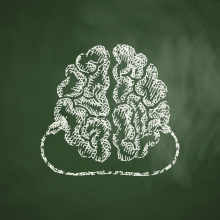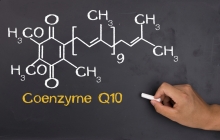“Don’t diss dad” might mean more than making sure not to forget dad on Father’s Day, as researchers look at just how influential environmental exposures and genetic interactions are on dad’s sperm and, as a result, his offspring.


Imagine taking strands of DNA – the material in our cells that determines how we look and function – and using it to build tiny structures that can deliver drugs to targets within the body or take electronic miniaturization to a whole new level.

An international team of scientists has discovered what amounts to a molecular reset button for our internal body clock. Their findings reveal a potential target to treat a range of disorders, from sleep disturbances to other behavioral, cognitive, and metabolic abnormalities, commonly associated with jet lag, shift work and exposure to light at night, as well as with neuropsychiatric conditions such as depression and autism.

A concentrated extract of maple syrup makes disease-causing bacteria more susceptible to antibiotics, according to laboratory experiments by researchers at McGill University.

McGill professor Vicky Kaspi, a world-renowned astrophysicist known for her cutting-edge work on neutron stars and pulsars, was awarded the Killam Prize today, one of the country’s most prestigious awards for academic-career achievement. The $100,000 prize was granted for outstanding scholarship in the natural sciences. Five awards – one each in the categories of the humanities, social sciences, natural sciences, health sciences and engineering -- are distributed every year by the Canada Council for the Arts.
Four new Canada Research Chairs have been awarded to McGill University researchers and two others have been renewed, representing a total of $6.6 million in funding over the next five to seven years for research in a range of fields related to health, medicine and engineering.

A tiny bit of silver, combined with water and air, can convert aldehydes into acids efficiently -- instead of the classical methods using stoichiometric amounts of expensive or toxic metal oxidants, according to a new study by McGill University researchers.

The research group of Prof. Tomislav Friščić in McGill’s Department of Chemistry has made a name for itself in the little-known, but growing field of “mechanochemistry,” in which chemical transformations are produced by milling, grinding or shearing solid-state ingredients – brute force, in other words, rather than fancy liquid agents. “Your coffee maker grinds things,” and grinding molecules in the lab involves much the same principle, Friščić notes. Using mechanical force also has the significant advantage of avoiding the use of environmentally harmful bulk solvents.



Until now scientists have believed that the variations in traits such as our height, skin colour, tendency to gain weight or not, intelligence, tendency to develop certain diseases, etc., all of them traits that exist along a continuum, were a result of both genetic and environmental factors. But they didn’t know how exactly these things worked together. By studying ants, McGill researchers have identified a key mechanism by which environmental (or epigenetic) factors influence the expression of all of these traits, (along with many more).

McGill researchers have discovered, for the first time, the importance of a key epigenetic regulator in the development of the hippocampus, a part of the brain associated with learning, memory and neural stem cells. Epigenetic regulators change the way specific genes function without altering their DNA sequence. By working with mutant mice as models, the research team, led by Prof. Xiang-Jiao Yang, of McGill’s Goodman Cancer Center & Department of Medicine, McGill University Health Center, was able to link the importance of a specific epigenetic regulator known as BRPF1 to the healthy development of a region in the hippocampus called the dentate gyrus.

The popular dietary supplement ubiquinone, also known as Coenzyme Q10, is widely believed to function as an antioxidant, protecting cells against damage from free radicals. But a new study by scientists at McGill University finds that ubiquinone is not a crucial antioxidant -- and that consuming it is unlikely to provide any benefit.
The Montreal Children’s Hospital Foundation, McGill University, the Université de Montréal and the Fondation du Dr Julien will establish two chairs in social pediatrics in the community, to be based in the Montreal neighbourhood of Hochelaga-Maisonneuve. In a Canadian first, researchers will conduct a long-term study on social pediatrics in the community. This clinical practice has a proven track record, thanks to its founder, Dr. Gilles Julien, who has been practicing social pediatrics in disadvantaged neighbourhoods for nearly 30 years.
